Sharpe Community Scholars champion research, hands-on learning
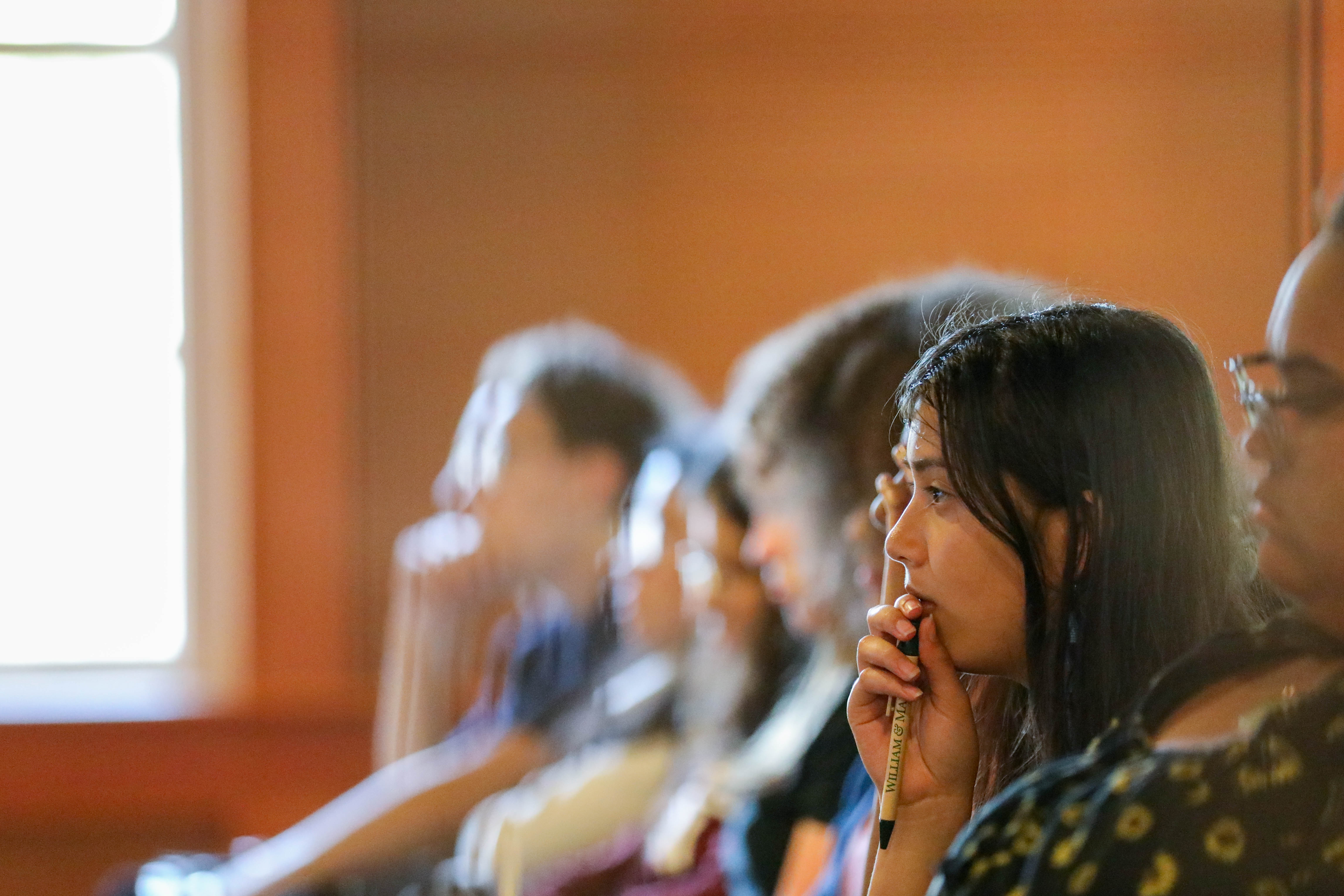 Learning flourishes at the intersections of class, community, and research – where knowledge and discovery mutually thrive in collaborating relationships.
Learning flourishes at the intersections of class, community, and research – where knowledge and discovery mutually thrive in collaborating relationships.
This is the philosophy behind the Sharpe Community Scholars Program, according to its director, Dr. Monica Griffin, who has been involved with the program since 2004.
A living-learning cohort of first-year students interested in community-based research and action, the Sharpe Scholars program combines passionate faculty with longstanding community partnerships to create a uniquely engaging curriculum.
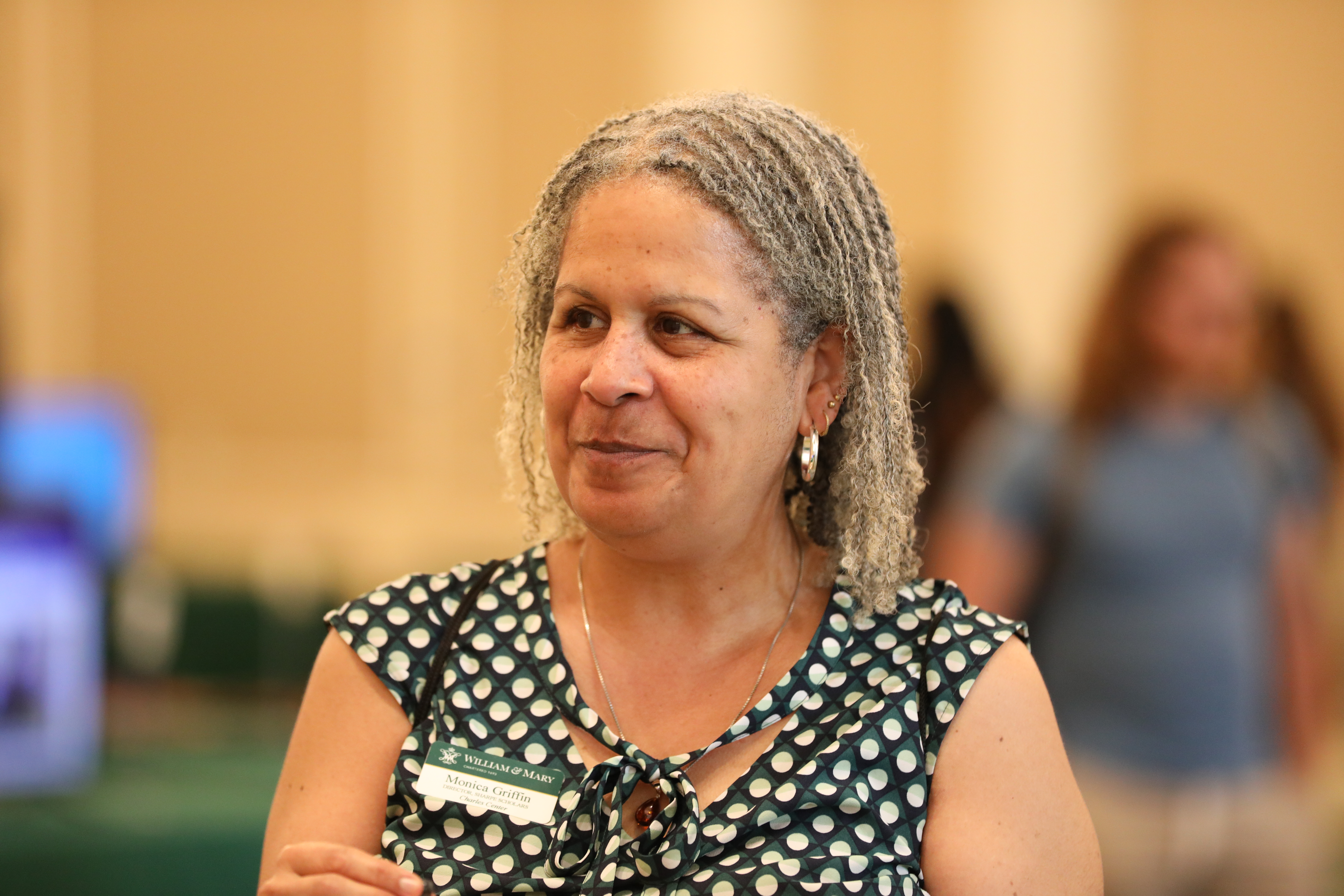 “I think one of the untold foundations of Sharpe is that we are built on a curriculum that has evolved over time,” Griffin said. “We've adapted to the point of really being a good way for students to learn as immersed in different partnerships, and I think that's not really obvious from a website or course description.”
“I think one of the untold foundations of Sharpe is that we are built on a curriculum that has evolved over time,” Griffin said. “We've adapted to the point of really being a good way for students to learn as immersed in different partnerships, and I think that's not really obvious from a website or course description.”
By participating in the Sharpe program, students take specially designed COLL 100 and 150 courses spanning a wide array of disciplines.
One such course, “Southern LGBTQ+ Theatre,” is taught by Teaching Professor of History and Community Studies Faculty Fellow Jay Watkins. It explores the vital role of the performing arts in building community and empowering underrepresented populations.
Professor Watkins works with the Richmond Triangle Players, a Richmond-based theatre company dedicated to queer artistry that traverses the lines of gender, sexuality, race, and class. The company sponsors a biennial So.Queer Playwriting Festival, which highlights playwrights who tell stories about the South. Watkins uses this valuable partnership to actively engage his students with the topics discussed in class.
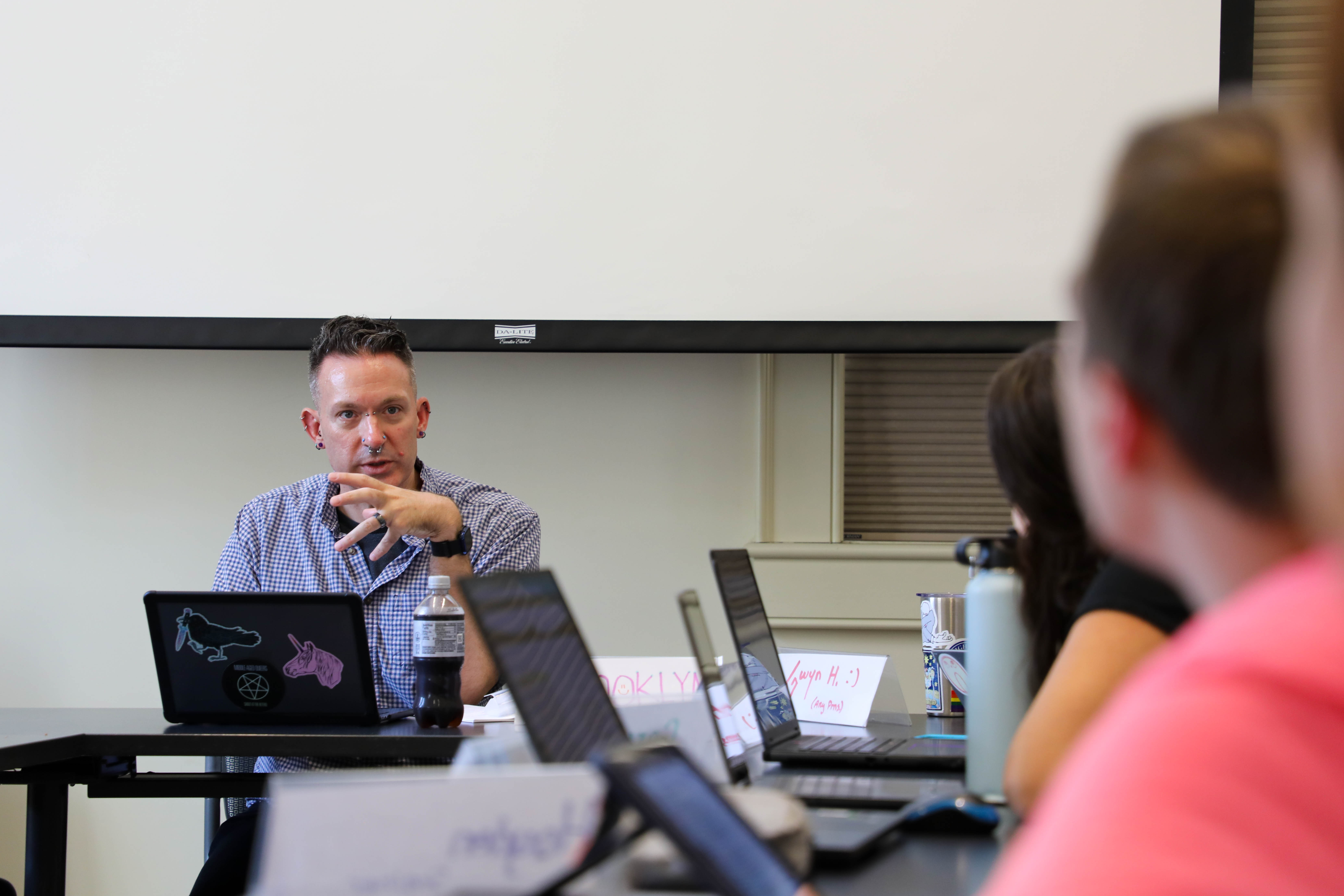 “Students are learning about the way that theatre, particularly of the local and community-driven variety, educates about community pasts,” Watkins said, “but we are also learning about the mechanics of building community across lines of difference. All good theatre can help us imagine better futures, and this year, with the inclusion of oral histories and The Greenhouse, by alumnus Harvey Stone, students can draw direct lessons from community elders for use in the present to make a better future.”
“Students are learning about the way that theatre, particularly of the local and community-driven variety, educates about community pasts,” Watkins said, “but we are also learning about the mechanics of building community across lines of difference. All good theatre can help us imagine better futures, and this year, with the inclusion of oral histories and The Greenhouse, by alumnus Harvey Stone, students can draw direct lessons from community elders for use in the present to make a better future.”
“Populating Early 20th-Century Black Williamsburg” is another course available to Sharpe Scholars. Taught by sociologist and Sharpe Professor of Civic Renewal Amy Quark, it explores the silenced histories of Black communities in Williamsburg through direct community research and engagement.
A large part of the class’s curriculum stems from involvement with the Village Initiative, a nonprofit organization committed to educational equity and reform in the Williamsburg-James City County school district. The Village Initiative conducts extensive community outreach related to educational disparities and has mined oral histories and genealogical research to assess segregation and desegregation over time.
“Amy Quark’s class takes a look at historical and demographic changes over time, but also importantly engages a documentary project with the Village Initiative which involves interviewing members of our community that were part of that social change in Williamsburg both residentially and in the school system,” said Griffin. Quark works with both Sharpe Scholars and upper-level students in these research pursuits.
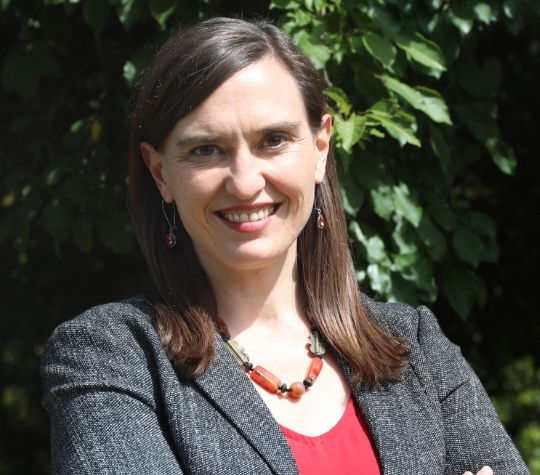 Another Sharpe-affiliated course, “Mapping Community Nature Rx,” is taught by Environment and Sustainability Teaching Professor Dorothy Ibes. Ibes challenges students to think critically about the relationship between nature and human health, particularly in underserved communities.
Another Sharpe-affiliated course, “Mapping Community Nature Rx,” is taught by Environment and Sustainability Teaching Professor Dorothy Ibes. Ibes challenges students to think critically about the relationship between nature and human health, particularly in underserved communities.
“Students go to local parks to collect data on significant natural features, cultural features, ecotherapy sites, and to map trails during two field trips,” Ibes said.
With the collected data, Sharpe Scholars create interactive ESRI StoryMaps that highlight regional partnerships and promote preservation and visitation to York County parks. The StoryMaps also highlight ways such greenspaces could promote both environmental and mental health.
Chancellor Professor of Biology Margaret Saha’s bacteriophage lab provides Sharpe Scholars with engaging hands-on scientific research experience of a different kind. The lab works to discover and study bacteria that are effective in killing certain highly relevant viruses. Through intensive mentoring, students learn about the wide-ranging impacts of collaborative, scientific research on community issues.
Through her lab, as well as her role as the director of iGEM, Saha connects students to a large, collaborative network of scientific researchers—at home and abroad.  In conjunction with Sharpe-aligned immersive courses, the program hosts a number of workshops throughout the year to engage Scholars directly with community, faculty, or other kinds of organizations for community-based research. Workshops have included campus and community partners, such as the Lemon Project, Bray School, and other organizations.
In conjunction with Sharpe-aligned immersive courses, the program hosts a number of workshops throughout the year to engage Scholars directly with community, faculty, or other kinds of organizations for community-based research. Workshops have included campus and community partners, such as the Lemon Project, Bray School, and other organizations.
One recent workshop was led by Sharpe alumna Elizabeth Miller ‘11, associate director of W&M Civic and Community Engagement. Miller guided students through stages of development toward an identity related to centering community as a part of one’s growth in community engagement.
In another workshop series, “Popcorn with Professors,” faculty meet with students in the program’s residence hall to speak about their research journeys. Quark jumpstarted this series this week to discuss the trajectory of her own research.
The Sharpe program also engages scholars’ community-centered thinking with issue-focused book reading groups and, new this year, a film series that explores dimensions of community in thought-provoking film and media.
To help scholars successfully achieve their academic, social, and research goals, the program employs an active peer mentorship network. Known as the Sharpe Fellows, upperclassmen assist up to twelve students each and often are former Sharpe Scholars themselves. 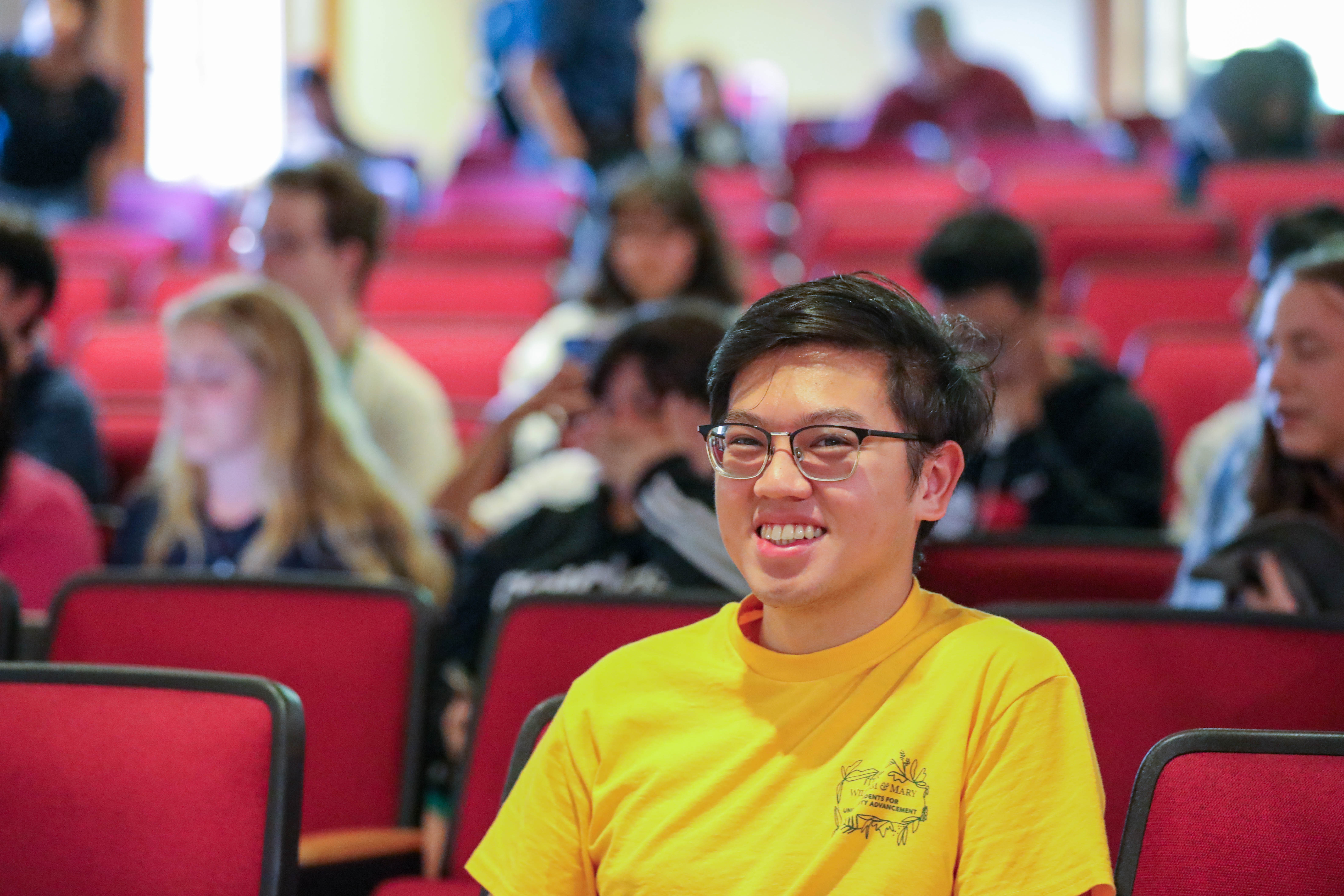 Sharpe Fellow Jason Zheng ‘26 attributes his deep commitment to the Sharpe Community Scholars Program to the unique experiences it has provided him.
Sharpe Fellow Jason Zheng ‘26 attributes his deep commitment to the Sharpe Community Scholars Program to the unique experiences it has provided him.
“What makes the Sharpe curriculum invaluable to William & Mary's liberal arts education is its ability to let scholars interact with the community and better understand the experiences that scholars can have, as long as they are willing to take advantage of them, including iGEM, the Lemon Project, the Communal Quilt Project, and so forth,” Zheng said.
Zheng added, “I have been lucky enough to assist professors, notably Dr. Jay Watkins and Dr. Dorothy Ibes, with field trips that truly allow Sharpe Scholars to take advantage of what it means to be in the community from viewing a phenomenal play presented by the Richmond Triangle Players or visiting spectacular rivers/sites that allow students to engage with the environment.”
The Sharpe program’s curriculum manifests the university’s deep-rooted institutional dedication to experiential learning, curiosity, and research. According to Griffin, “The program is a part of the Charles Center and the broader mission is to support students in engaging research and fulfilling that curiosity. So I think Sharpe offers a particular kind of support that integrates community focus as a part of that goal.”
If you are a prospective student interested in the Sharpe Community Scholars program, click here for more information about the application process.



















